read the full story
read the full story
Freedom
Text by Tracy McVeigh for The Observer
High walls still surround the oldest asylum in the Balkans, an 18th-century building pocked with the artillery scars of last century’s civil war, but the gates are no longer locked. Handles have been replaced on internal doors and bars removed from windows.
“The jail,” said Darko Kovaoic, a 53-year-old poet with schizophrenia who lives here, “has broken open.”
The institution in Osijek, eastern Croatia, is run by Ladislav Lamza, a former social worker who is taking on the government, the health minister, and his own staff to transform the lives of his “beneficiaries” – the patients of what was, until recently, an old-style asylum.
It was in May 2015 that Lamza ripped down the sign outside – replacing “Home for the Insane” with “Centre for People Like Us” and began moving people out. “We express many things in that small sentence,” said Lamza. “Because what we have done for the past two centuries is the opposite. We’ve said: ‘You are not like us, you are ugly and mad and I’m not like you.’ This is where we exclude, stigmatise and restrain people for the rest of their lives.”
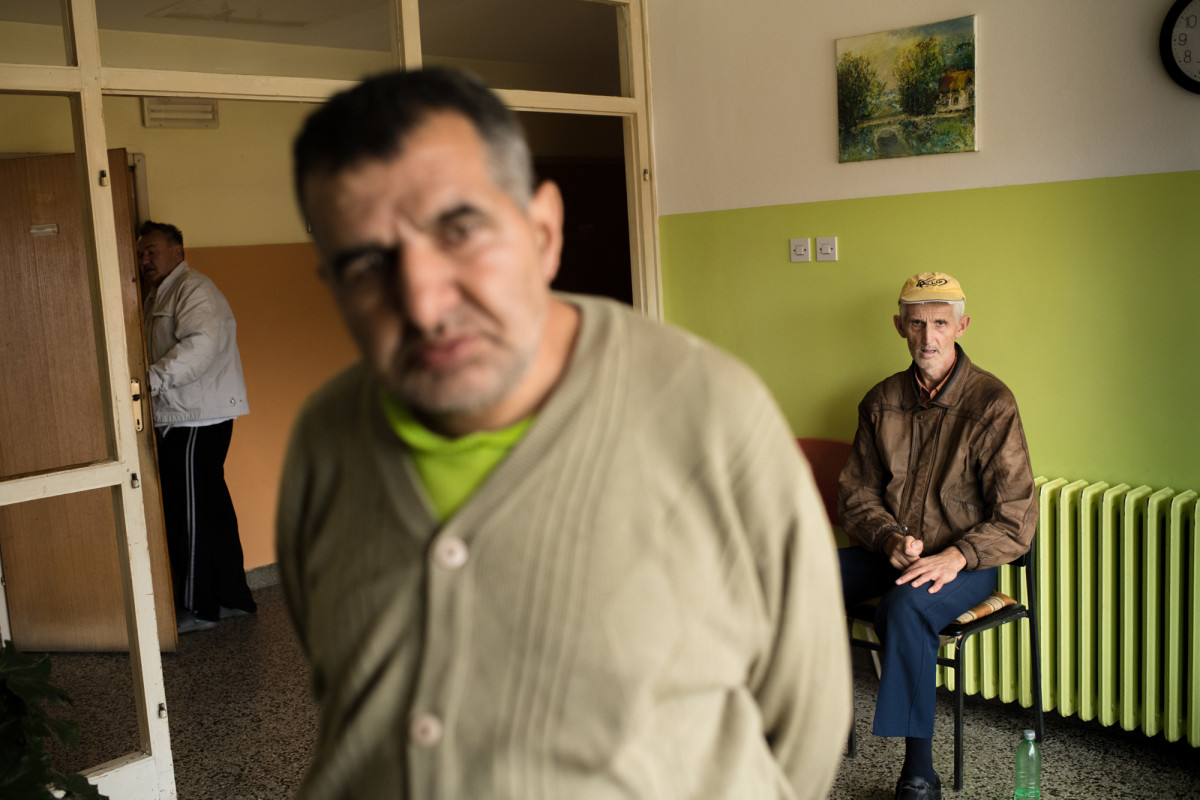
“We have people in need and we provide inappropriate help and the result is catastrophic. I never knew anyone who was rehabilitated. We make equality between criminals and people with disabilities.”
Lamza’s transformation of the centre caused shock and upset: one member of staff pointed out that these were people who should have been “exterminated”.
In four years, 172 out of 200 people have been successfully moved into shared flats dotted around the small city, with carers from the centre visiting them as needed. As his institution emptied, Lamza ditched the metal bed frames and stained mattresses. Although the paint still peels and the furniture is scratched and sagged, he has turned the bleak, soulless wards into rooms for day classes, a library and a bright cafe where former patients demonstrate how to make pancakes and brew tea for other ex-patients who come by daily to grow cabbages in the gardens or to chat with staff. Staff are no longer janitors, nurses, cooks or cleaners, but all are now “care assistants”. The transformation, says Butkovic Jadranka – formerly a hairdresser here, now running sewing classes and shopping and theatre trips – is amazing.
“When we first heard of the director’s plans, I was fearful, everyone was fearful, we thought perhaps he had gone a little crazy. But now everything is completely different. Before it was like they were objects, slightly out of focus objects. Just numbers. Like on a conveyer belt. I never asked anyone’s name. Now they are my friends. People are not dangerous lunatics, they have become citizens, they have become neighbours.”
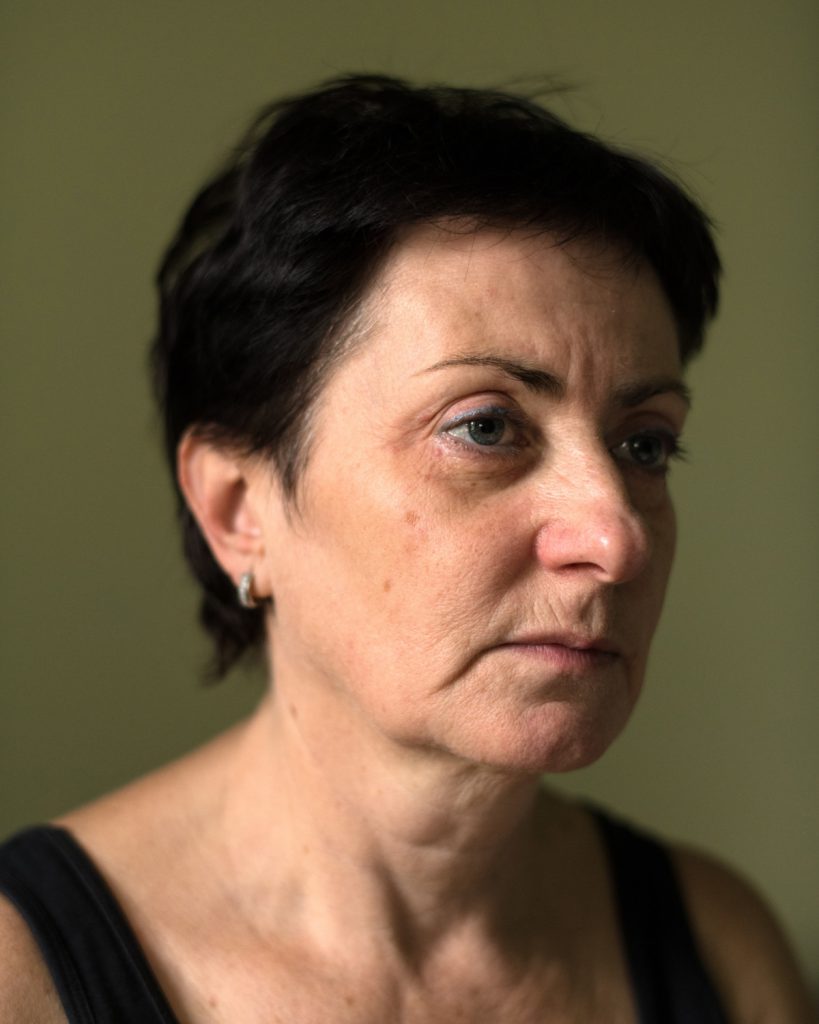
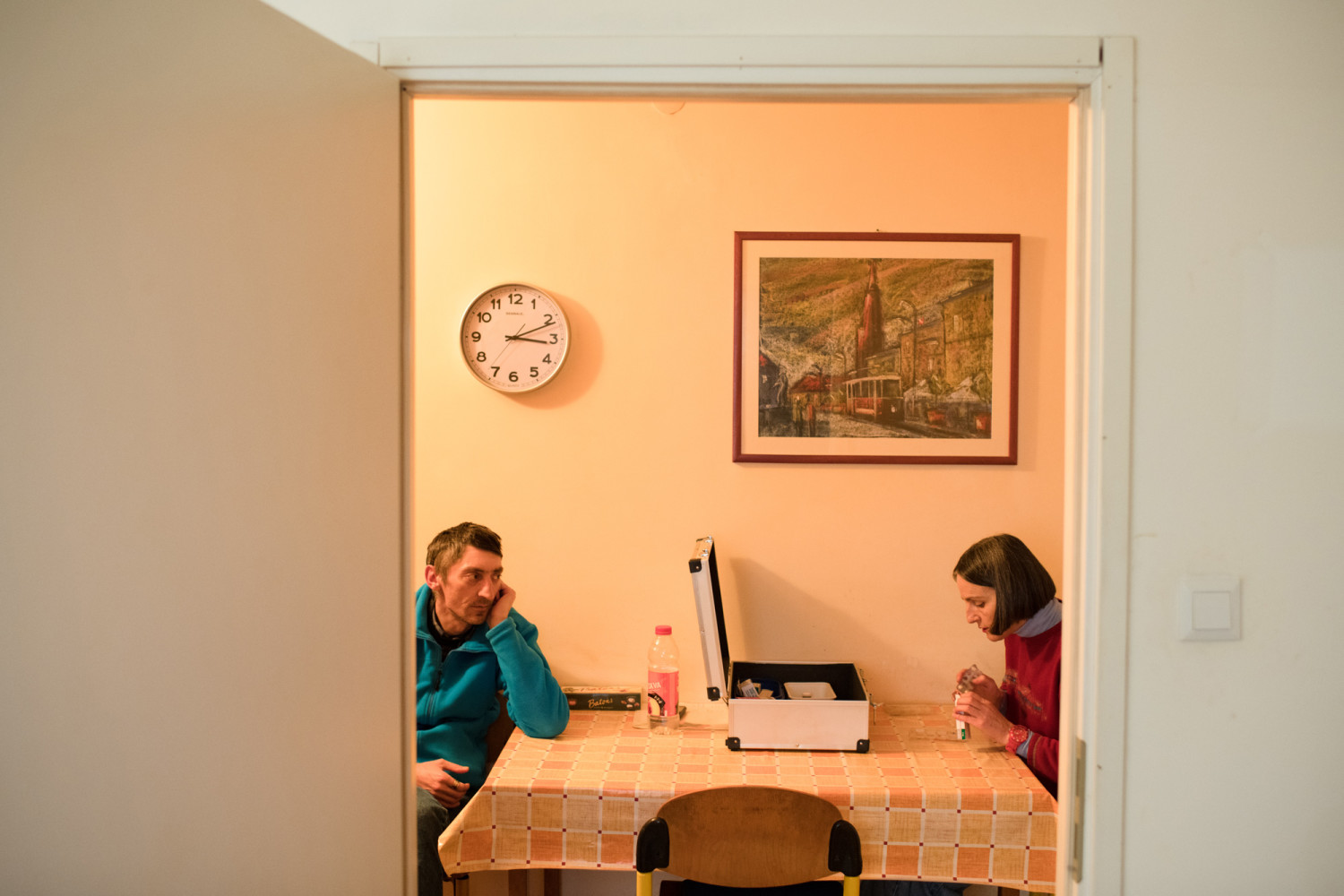
“I was in prison before. Now I love to make apple pies”
It is 10 years since Croatia signed the UN’s Convention on the Rights of Persons with Disabilities but Osijek is the only one of Croatia’s 24 mental health institutions which house a total of 6,700 people, implementing its spirit. “We signed this with our fingers crossed behind our backs. The government still wants people locked up, locked away. People with disabilities, whether mental health or physical, have rights. There are four reasons why inclusion is better than exclusion,” said Lamza. “It’s better for a person, it’s better for the community, it’s legal, it’s cheaper.” He says the cost per person per month in an institution is $1,260 (£950). “In the community, even with the maximum 24-hour support, it is $1,020.”
“The first day I let people go I didn’t sleep: will she hurt someone, will he cope? But there have been no problems. People have thanked us for giving them the best neighbours they have ever had!”
After 12 years in institutions, Branka Reljan, 55, has spent three years living in the community, in a shared flat with her partner Drazenko Tevlli. She speaks fluent German and English but has suffered mental health breakdowns since university and has let go of old ambitions. Now the couple take great delight in visiting cafes and shops. “We met in the institution but love is not allowed so we lived a secret for 11 years. I say I was in prison before. Now I love to make apple pies and buy spices and oils for cooking. It is wonderful for us to have our own keys, to buy fresh juice and to take a bus. We are satisfied with our neighbours. We are happy.”
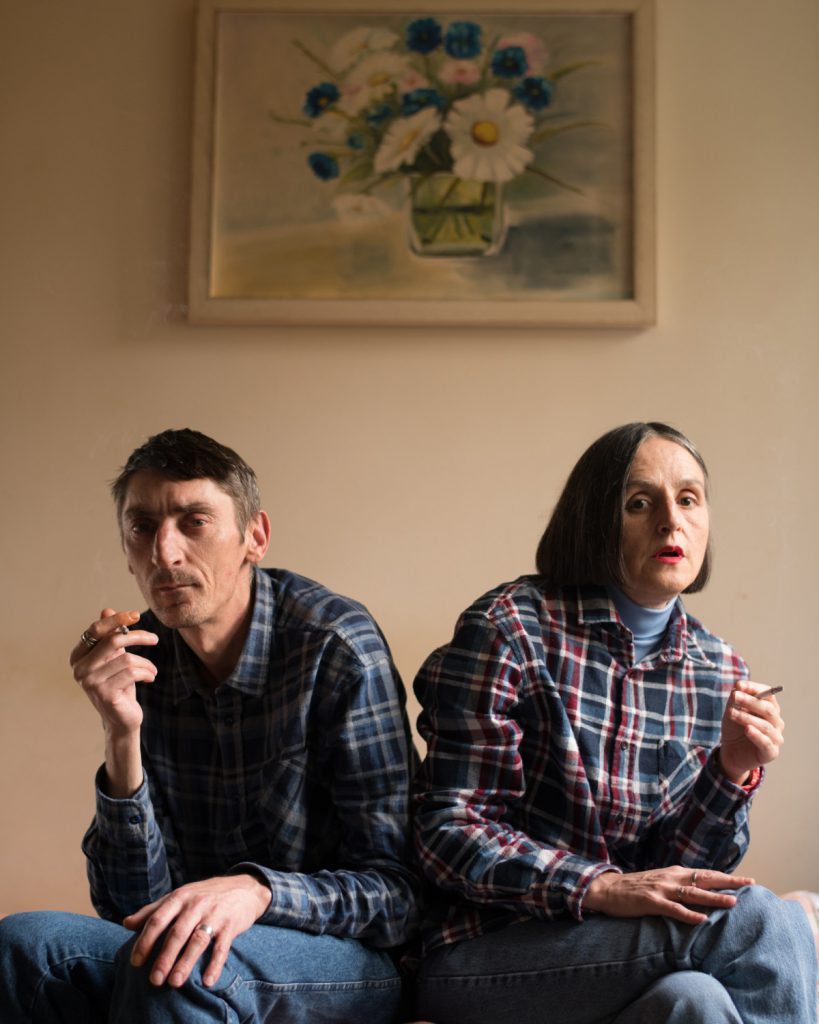
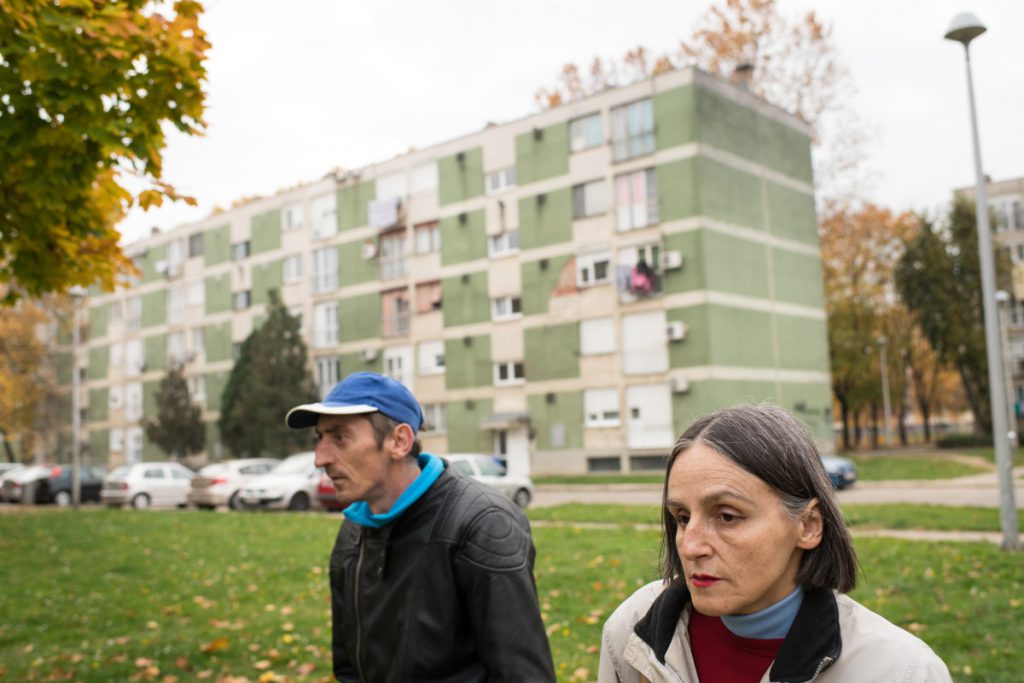
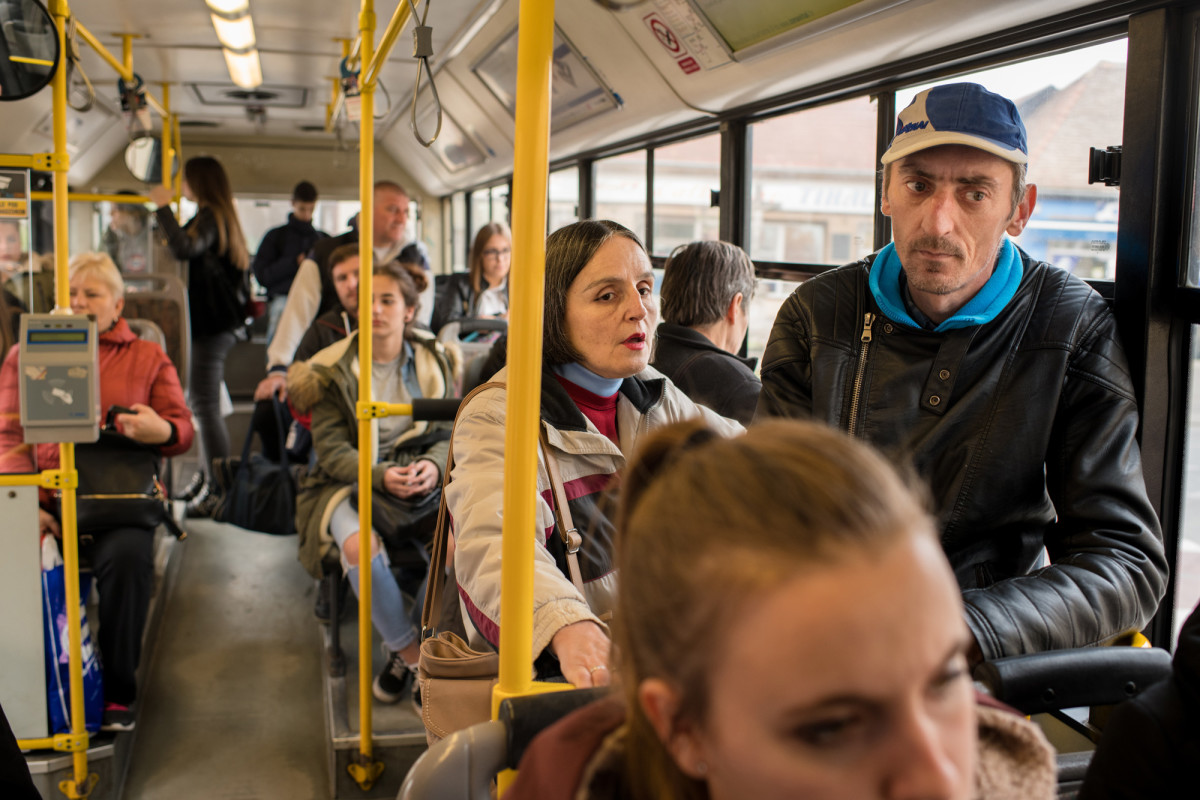
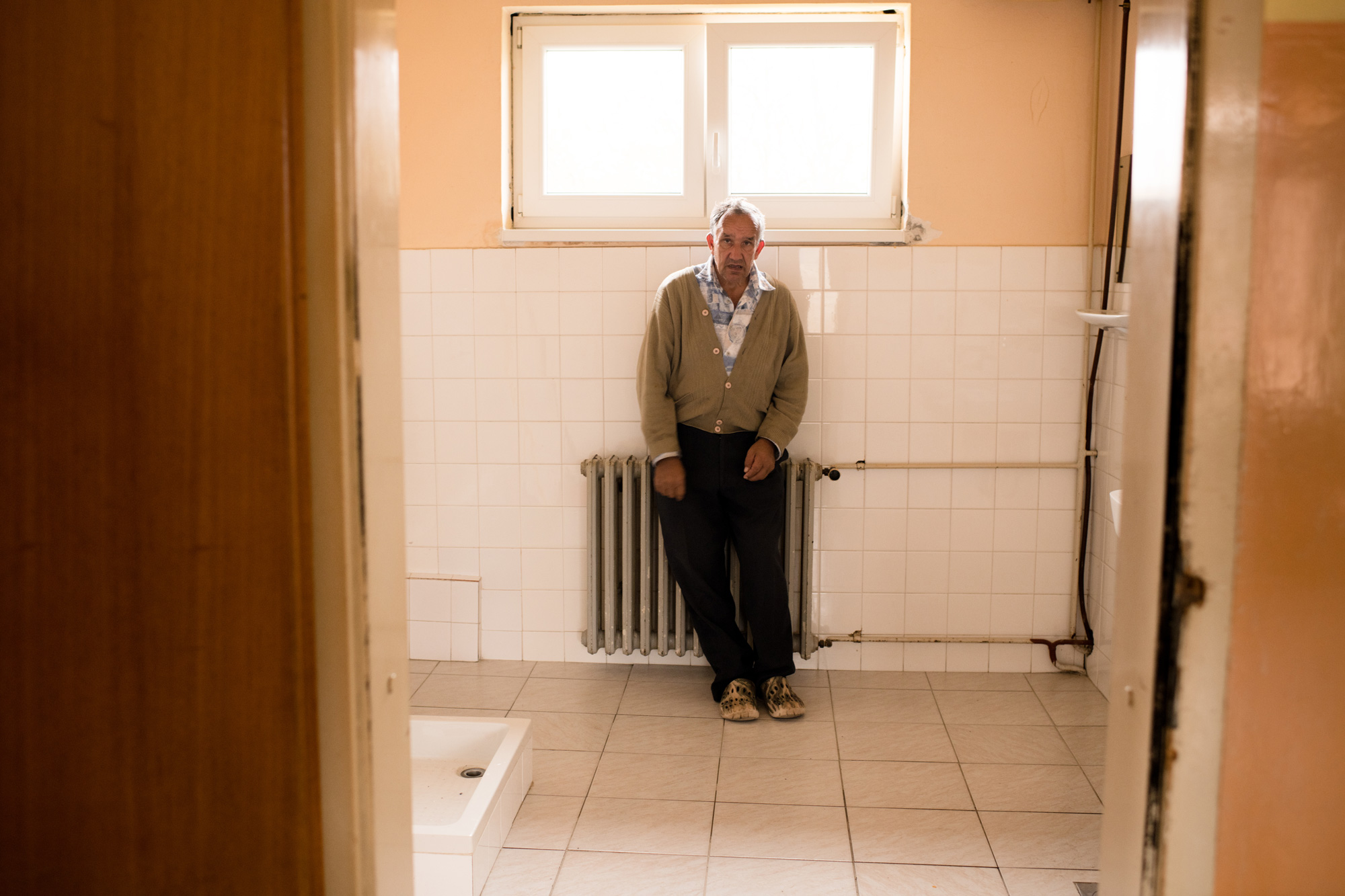
“A warehouse for lost souls”
If other asylums in Croatia had any desire to follow Lamza’s care in the community model it would be more difficult. Most were built far from towns.
Rada Matos is the director of Ljeskovica home for mentally ill adults, deep in the Pozega forest, an hour’s drive from Osijek. Lamza describes it as “a warehouse for lost souls”. Matos says she does her best for the 284 people here but points out that Croatia is a poor country and mental health is both under-resourced and stigmatised. “We have no psychologists and no psychiatrists, no professional is interested in coming out here to work, yet perversely we are the main employer in the area for unskilled workers. It’s too far for relatives to visit and there is no community for people to live in even if I had the resources to try. There is a tiny village of uneducated people to whom this is the madhouse.”
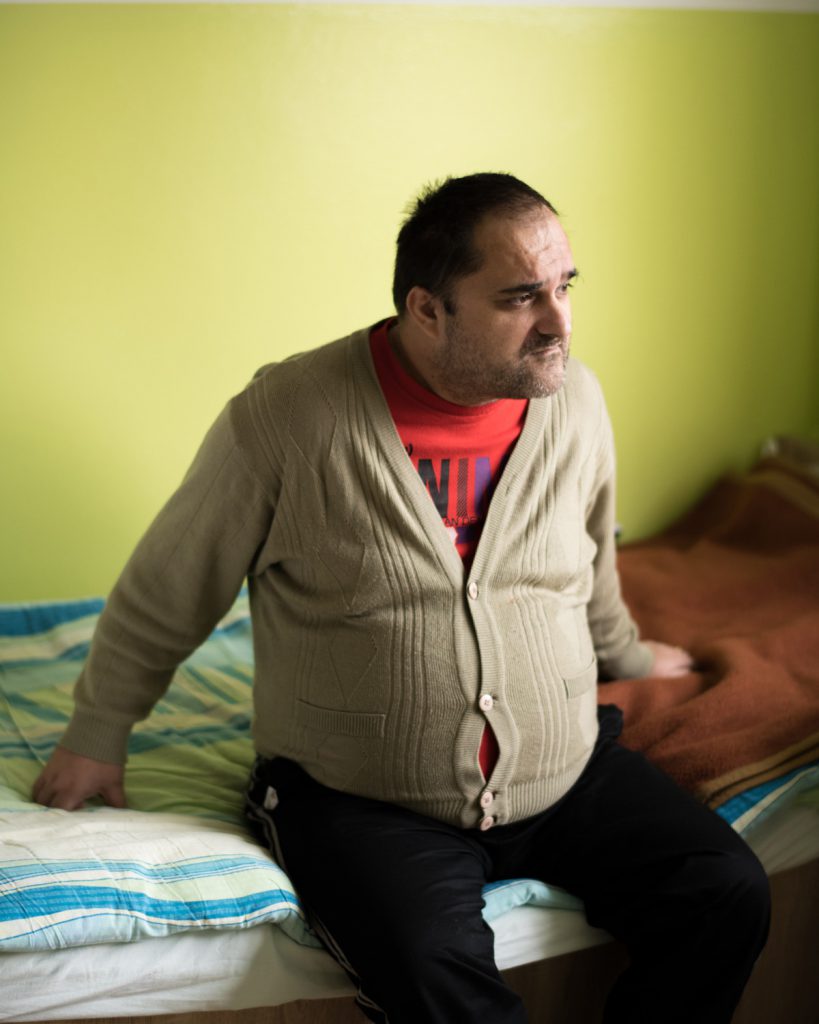
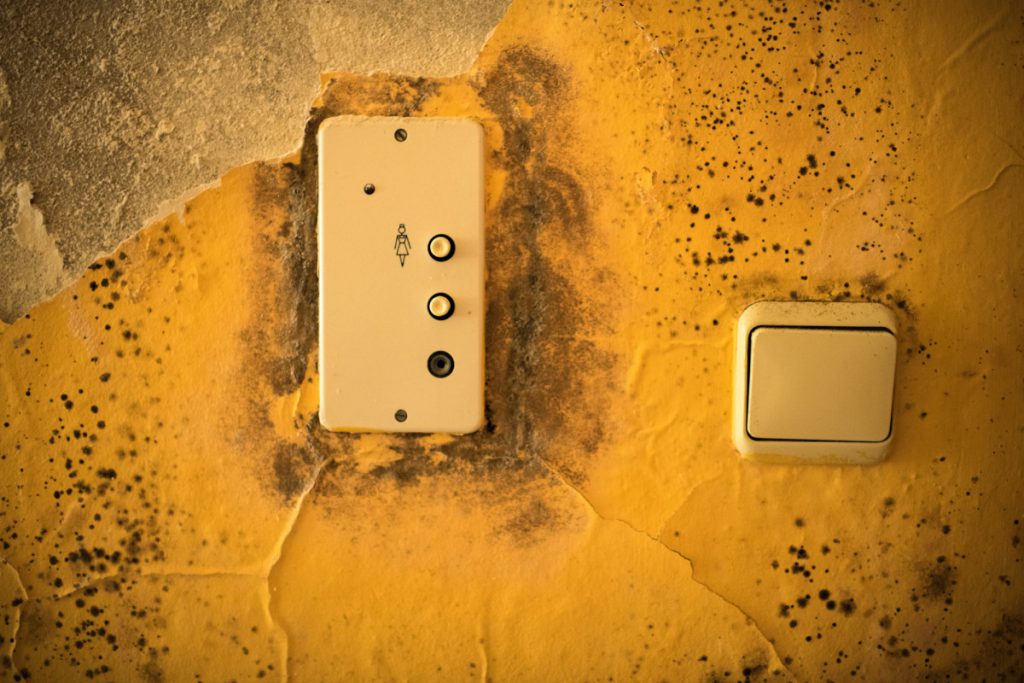
There is a long waiting list to come here, but few leave. “Maybe two a year,” she said. “We try to explain mental health is an illness, we invite in families, school groups. But what I’d really need to do is move this building somewhere else, somewhere where there is a community.”
Around the grounds and in the corridors, people stand or wander in shabby clothes too big or too small. Miryama Nikoli, 38, is new to Ljeskovica but has been institutionalised for 18 years. Eyes glazed by medication that hasn’t been changed in all that time, she talks to everyone about her daughter, taken away as a baby. “I was sick because of my nerves but now I suffer because of my baby,” she says. “I drink the medicine but I want to see her again.” Matos pulls out her file; her background is heart-breaking and abusive. One line mentions the child, who will now be 18. The file contains four A4 pages.
In Osijek the belief is that lives are better on the outside. Care assistant Vlatka Griner said the hardest task in moving people into the community was to make them use chairs: “At the asylum, they squat in the corridors, smoking. Squat, smoke, move a bit and squat again. What else did they have to do? In only slippers, just slippers because they never went out. When they are in the apartments the hard thing is to get people to sit in chairs. It can take a good two months.”
“Then they go to the shops, buy their own food, buy their own clothes, run their own lives. Brush their hair. They’re unrecognisable.”

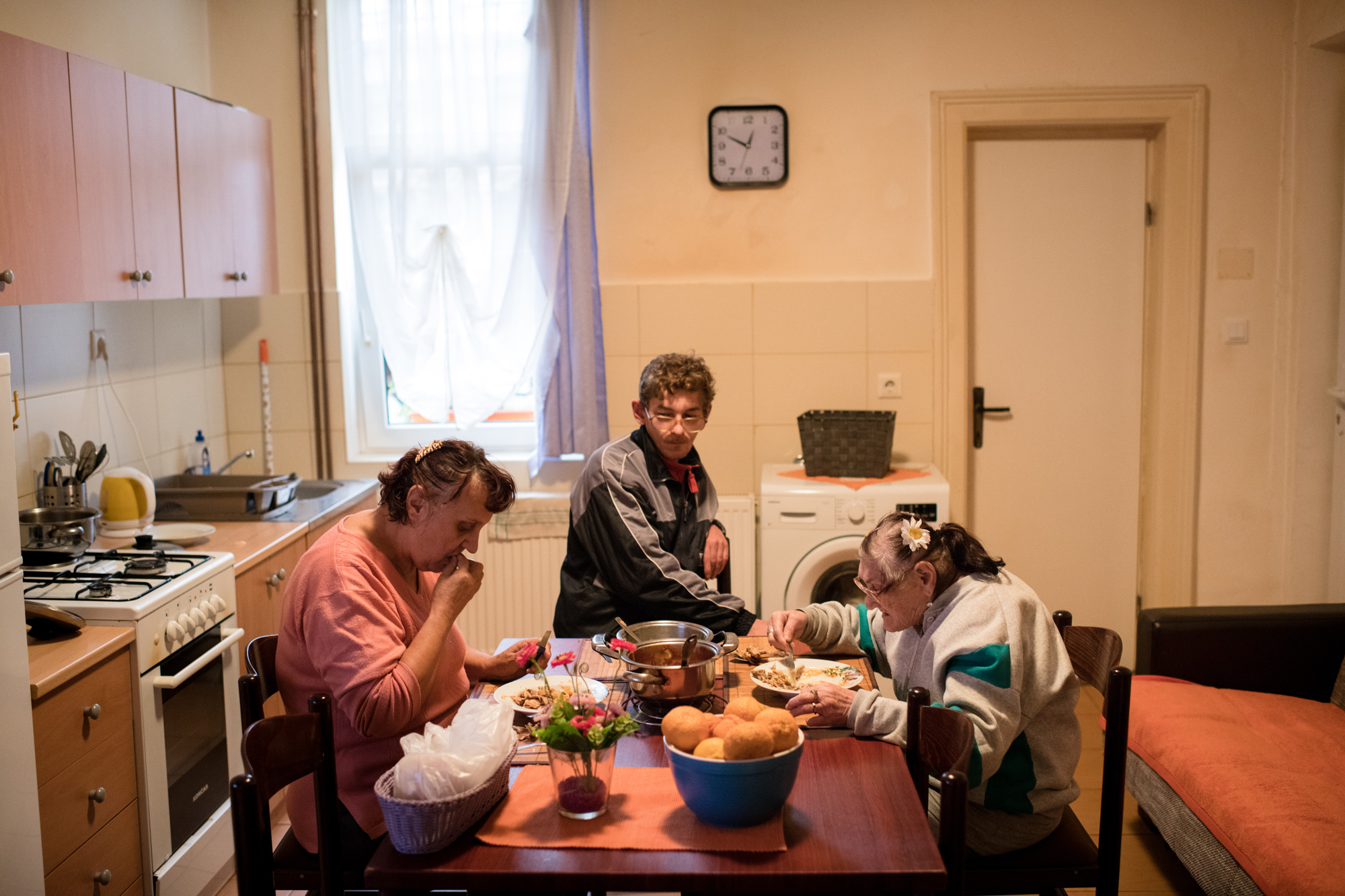
It is not a solution for everyone. Back in Osijek, Zdenko Kovac, 64, is a convicted murderer and, although he claims the scars on his head are from an axe wielded by his wife and he is not deemed dangerous enough for a secure hospital, he has failed to cope outside and is back in the institution where he wants to stay “until I die”.
“He is someone I worry about,” admits Lamza, “he wants to stay and ideally he will.” For others, it was never the right place. Luka Bobanovic, 36, caught a fever aged seven that left him brain-damaged. His mother handed him over to state care and he has been bounced around from institution to institution. “When he came to us he was very disturbed,” said Lamza. “Eight times Luka went through a door or window, either him chasing staff or them chasing him. The doctor told staff to tie him to his bed. I found him like that, tied to his bed, crying for his mamma. The staff shrugged and told me ‘we are scared of him’.”
Now he lives in a small bungalow with three other beneficiaries and round-the-clock care.“Our work doesn’t end when people live outside the institution,” said Lamza. “We are supporting them to live like every citizen of this town, to fall in love, dance, eat pancakes. I want to give people back a reason to live. That is what we have been taking from them, their humanity.
“I’m ashamed of how people lived before, but I’m happy,” Lamza said, “because they’re happy.”
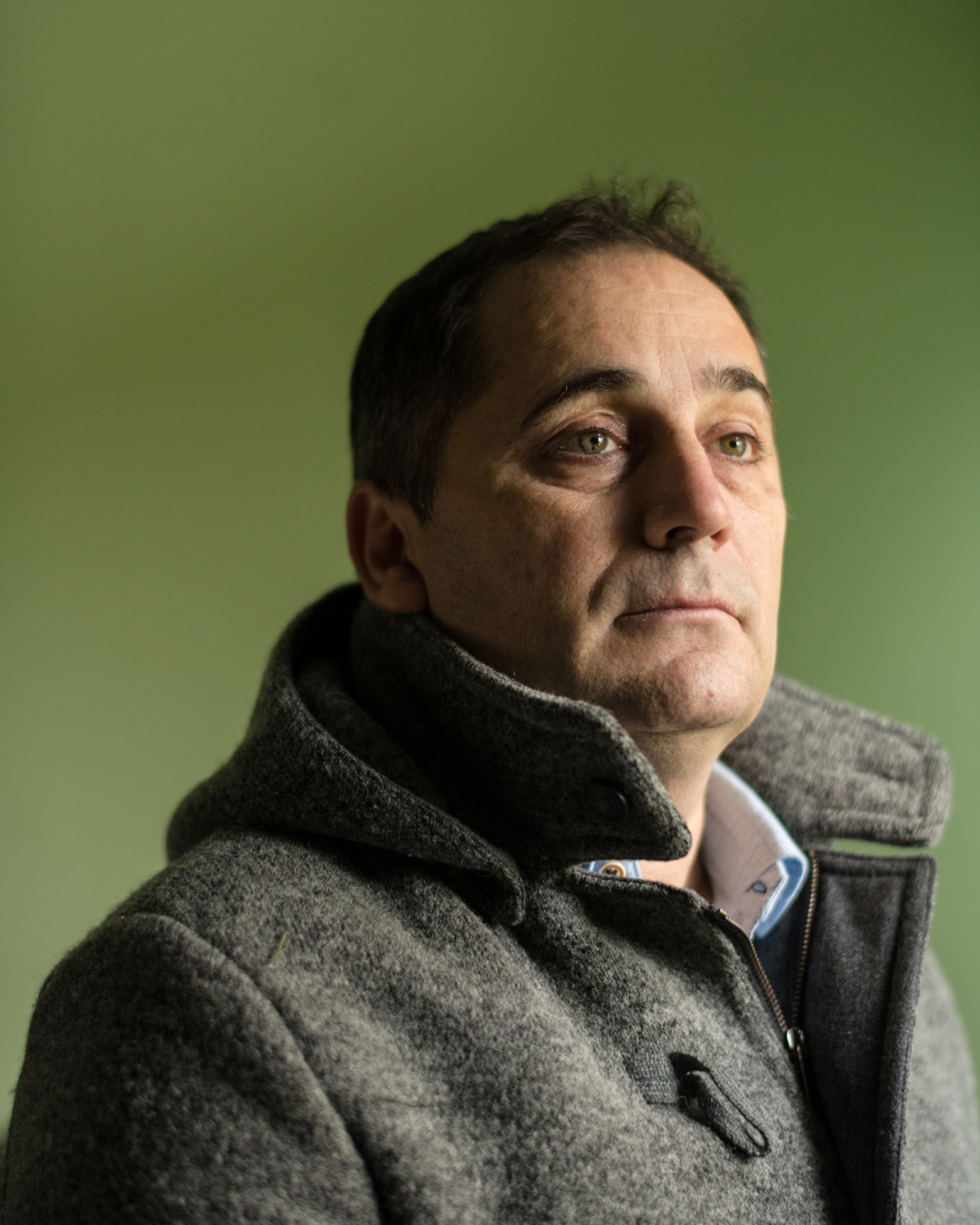
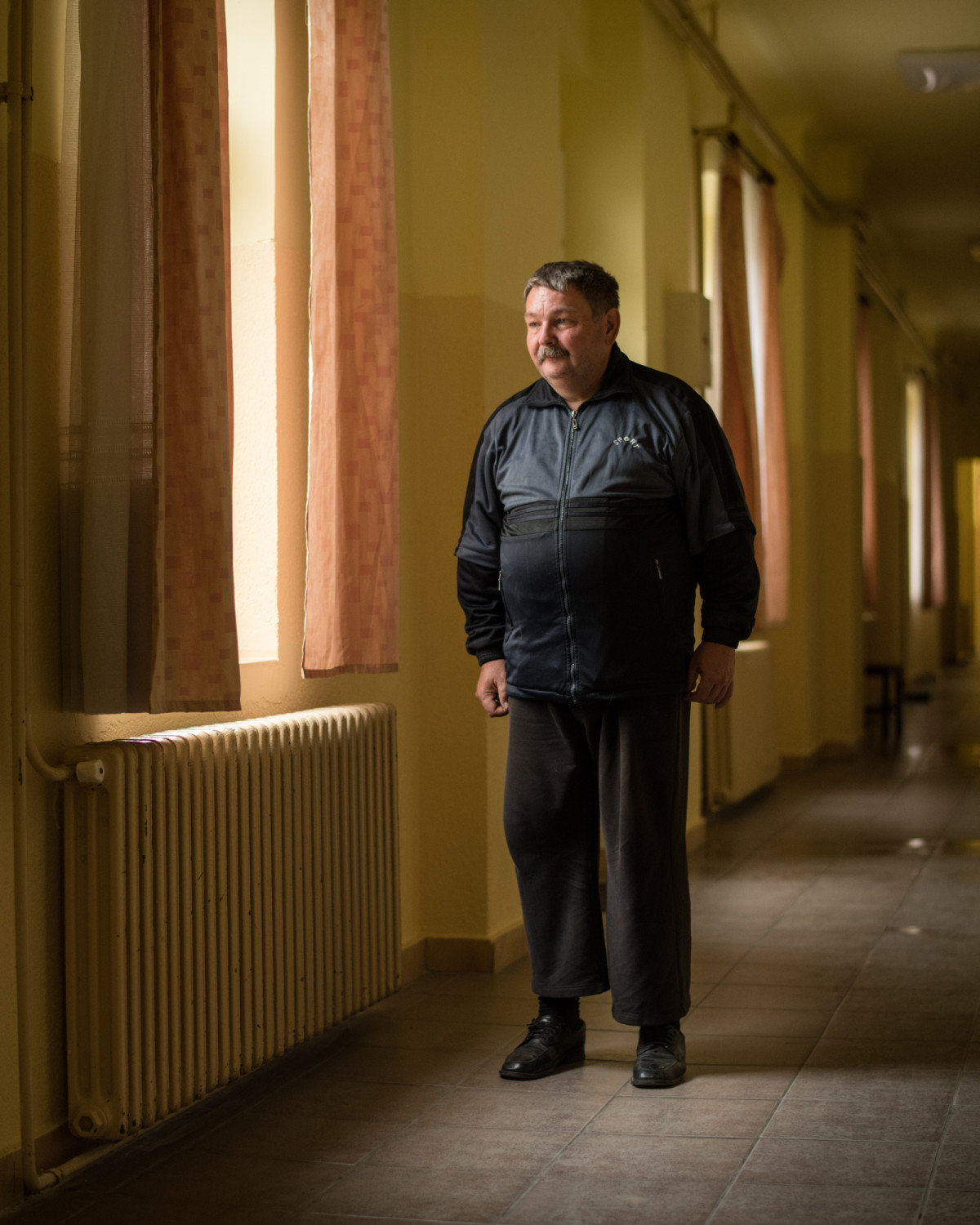
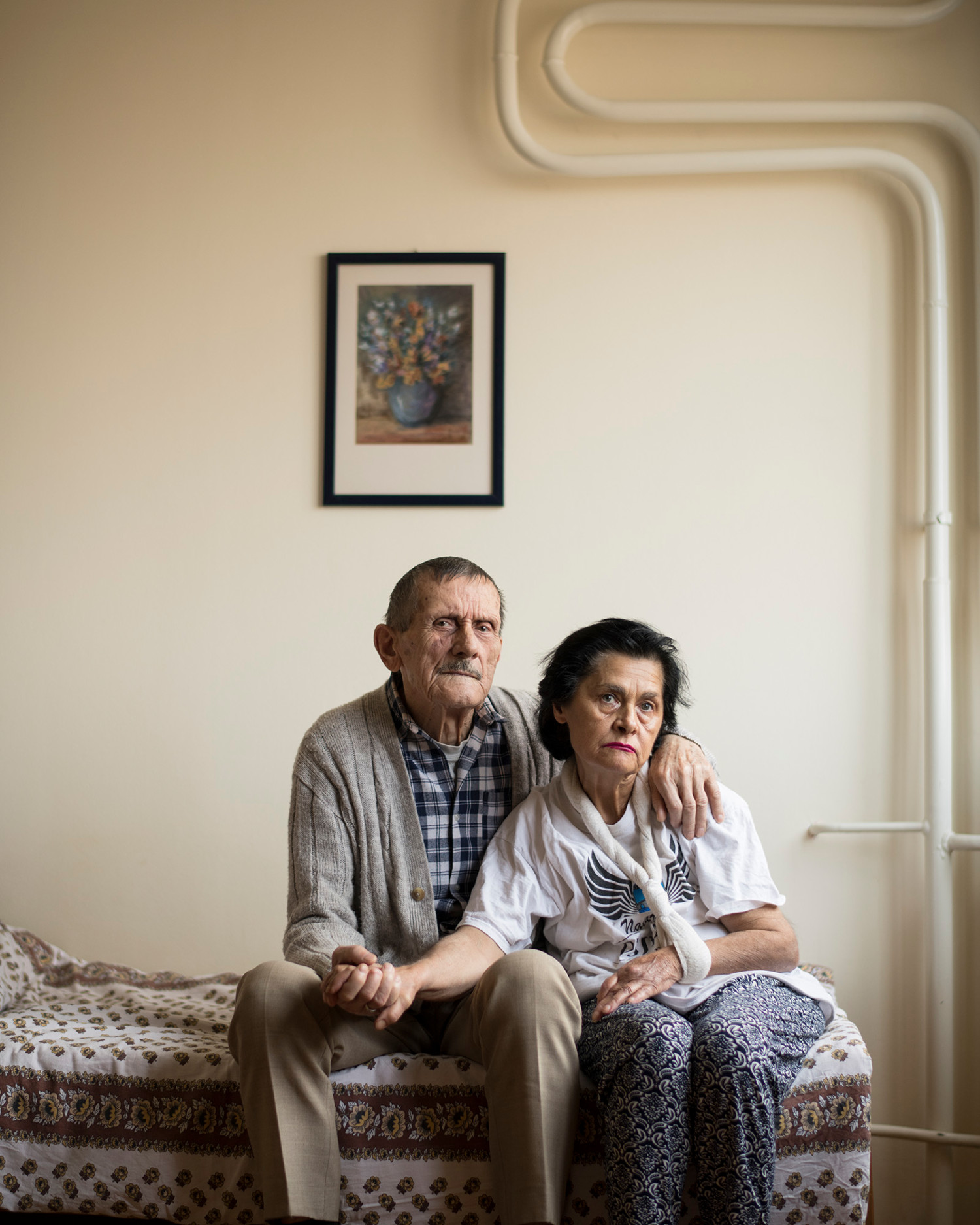
THE SITUATION IN DETAIL.
By Judith Klein, Director, Open Society Mental Health Initiative, Open Society Foundations
In late 2010, pursuant to Croatia’s ratification of the Convention on the Rights of Persons with Disabilities and the adoption of a national strategy on equality for persons with disabilities, the Social Welfare Ministry adopted a five-year (2011-2016/2018) National Plan on Deinstitutionalization and Transformation of Social Welfare Institutions. The goal of this Plan is to advance deinstitutionalization by transforming long-stay social welfare institutions into community-based service providers.
The conditions for the operationalization of this strategy were in place in late 2012, when the Ministry of Social Policy and Youth proposed to begin with the deinstitutionalization and transformation of the two largest residential institutions for people with intellectual disabilities, the Center for Rehabilitation Zagreb (CRZ) and the Center for Rehabilitation Stancic (CRS). The transformation of these institutions into modern community-based service providers was planned to result in some 400 people moving to the community.
Between 2013-2015, the government began to invest significant efforts in implementing deinstitutionalization.
During 2013-2014, an EU funded project: Support to the social welfare sector in the process of further deinstitutionalization of social services, supported the Ministry of Social Policy and Youth and 26 of its residential institutions for people with intellectual disabilities to develop capacity to implement large-scale transformation initiatives, and prepare to use EU Structural funds to cover transition costs.
To build on this momentum, in 2013, the Open Society Foundations provided the Ministry with a $3.2 million grant to support continued deinstitutionalization and implement large-scale reform. By 2015, this resulted in more than 500 people with intellectual and psychosocial disabilities leaving residential institutions and receiving supported housing services in the community from the transformed state service providers. An additional 400 people receive supported housing services from 13 NGO service providers across the country.
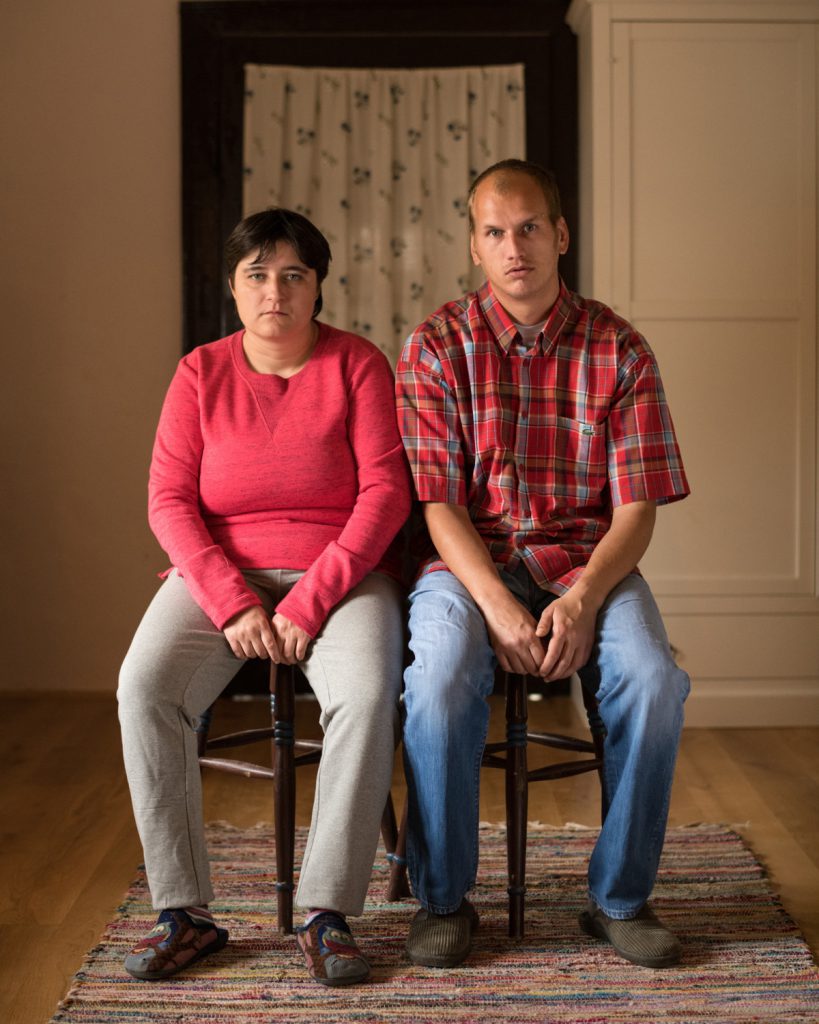
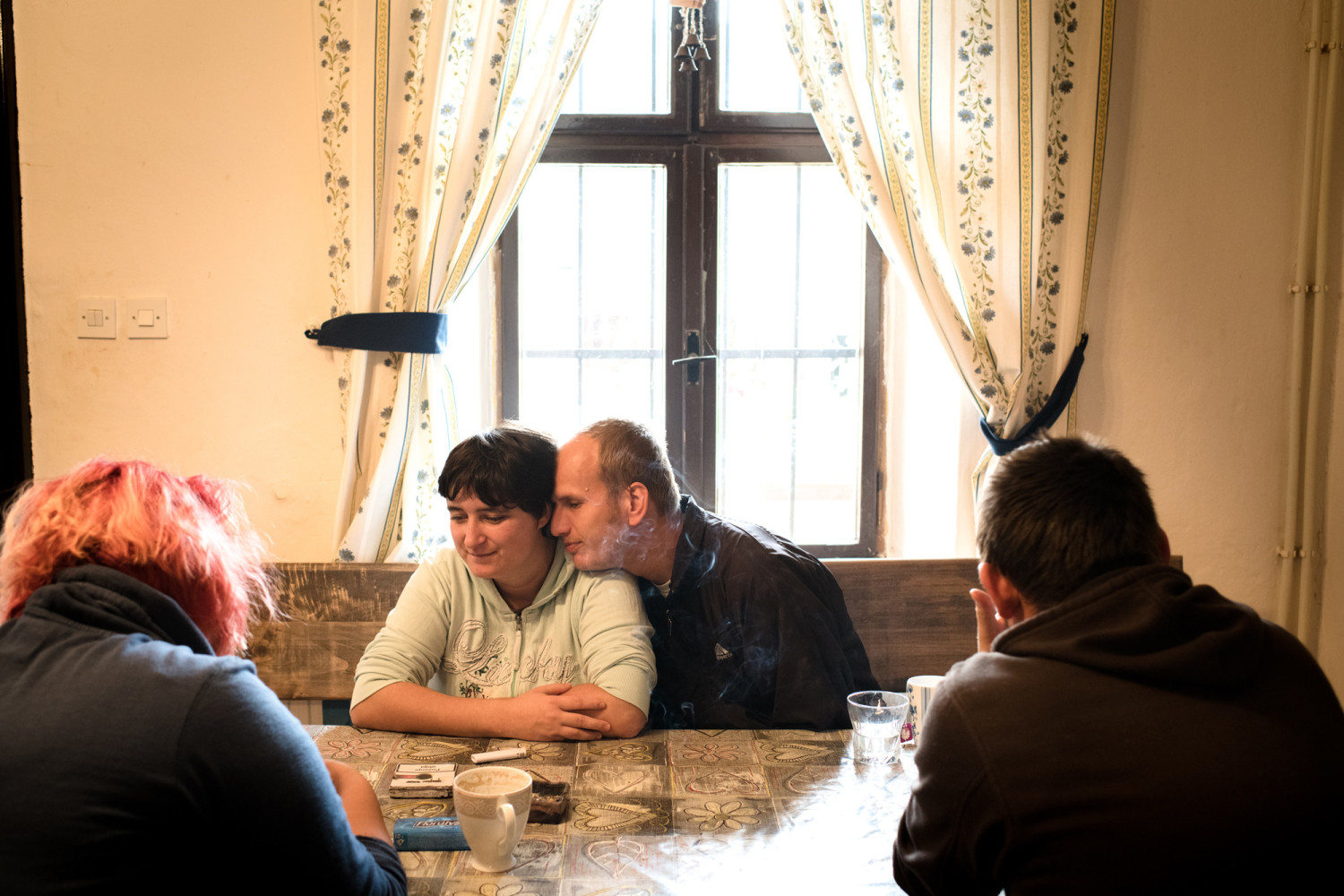
“These positive examples demonstrate that with the support and commitment of policy makers, reform is indeed possible.”
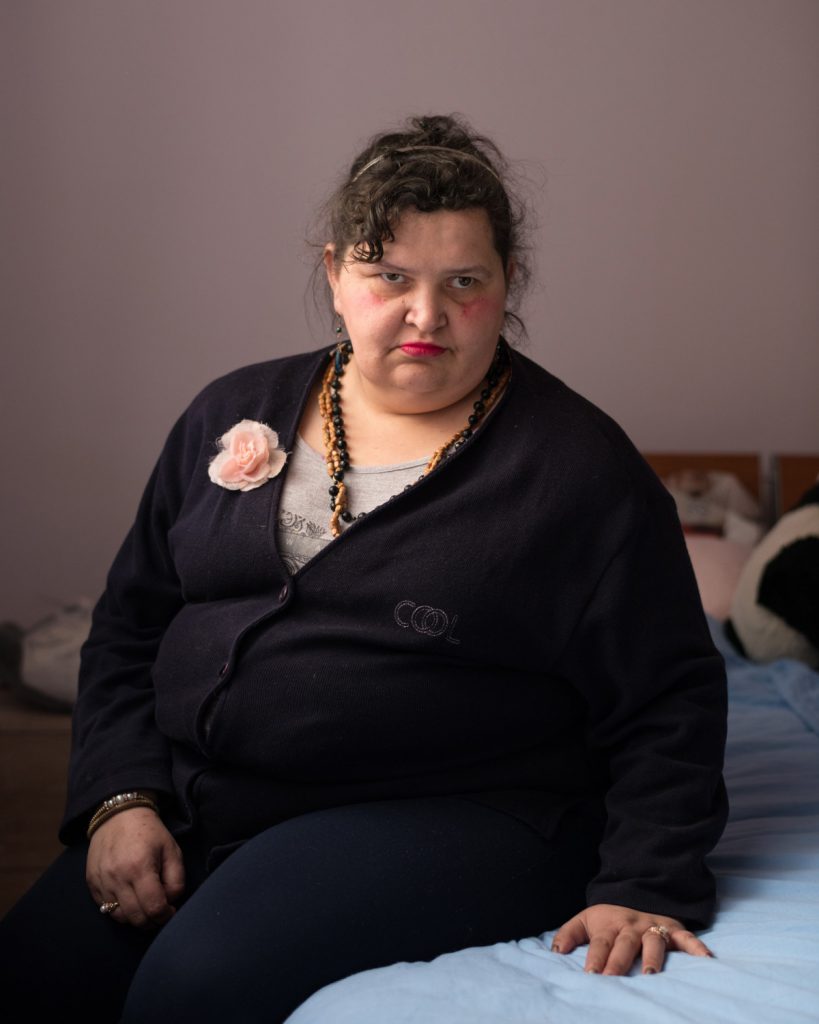
In 2013, two more residential institutions, the Centre for Rehabilitation Ozalj and the Home for Mentally Ill People Osijek, with the support of the Open Society Foundations, took significant steps in developing community based alternatives. This has resulted in these institutions’ successful transformations, with the complete closure of all residential beds, in 2016. These positive examples demonstrate that with the support and commitment of policy makers, reform is indeed possible.
This period of political will to support the deinstitutionalization process, while producing some promising results, has also resulted in several problems which remain unresolved:
– The deinstitutionalization of state institutions, and their transformation into community based service providers was not followed by implementing the necessary changes in the regulatory and financing frameworks to support their sustainable functioning. This has increased the operating costs of the state service providers, and has created great inequality between the cost of service provision for NGO and state providers of the same services. The mechanism of “money follows the person” is not in place, and funding is not being redirected to the community based services. Thus, community based services are seen as an additional expense, rather than an integral part of the social welfare system.
– Measures to stimulate the transformation of residential institutions such as access to additional temporary staff and housing provided by government were not accessible to NGO service providers, though state residential institutions rely on NGO service providers to take in people who are not originally from their region.
– No measures are in place to stimulate the development of community based services to support people with intellectual and psychosocial disabilities who live with their families, but are in imminent danger of institutionalization because their families are no longer able to care for them.
– The deinstitutionalization process and development of community based alternatives were planned to be supported by EU Structural funds in the past two years, but this did not happen because the Ministries did not publish tenders for this funding, although the government has already secured funding from the EU for this purpose.
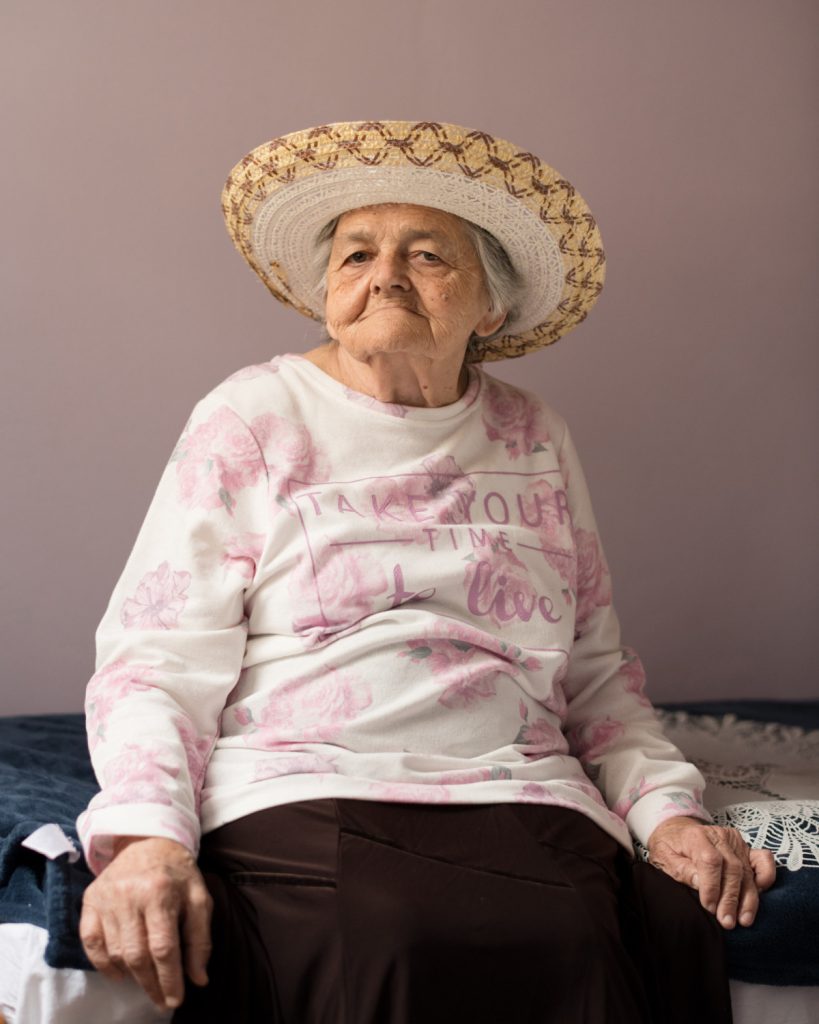
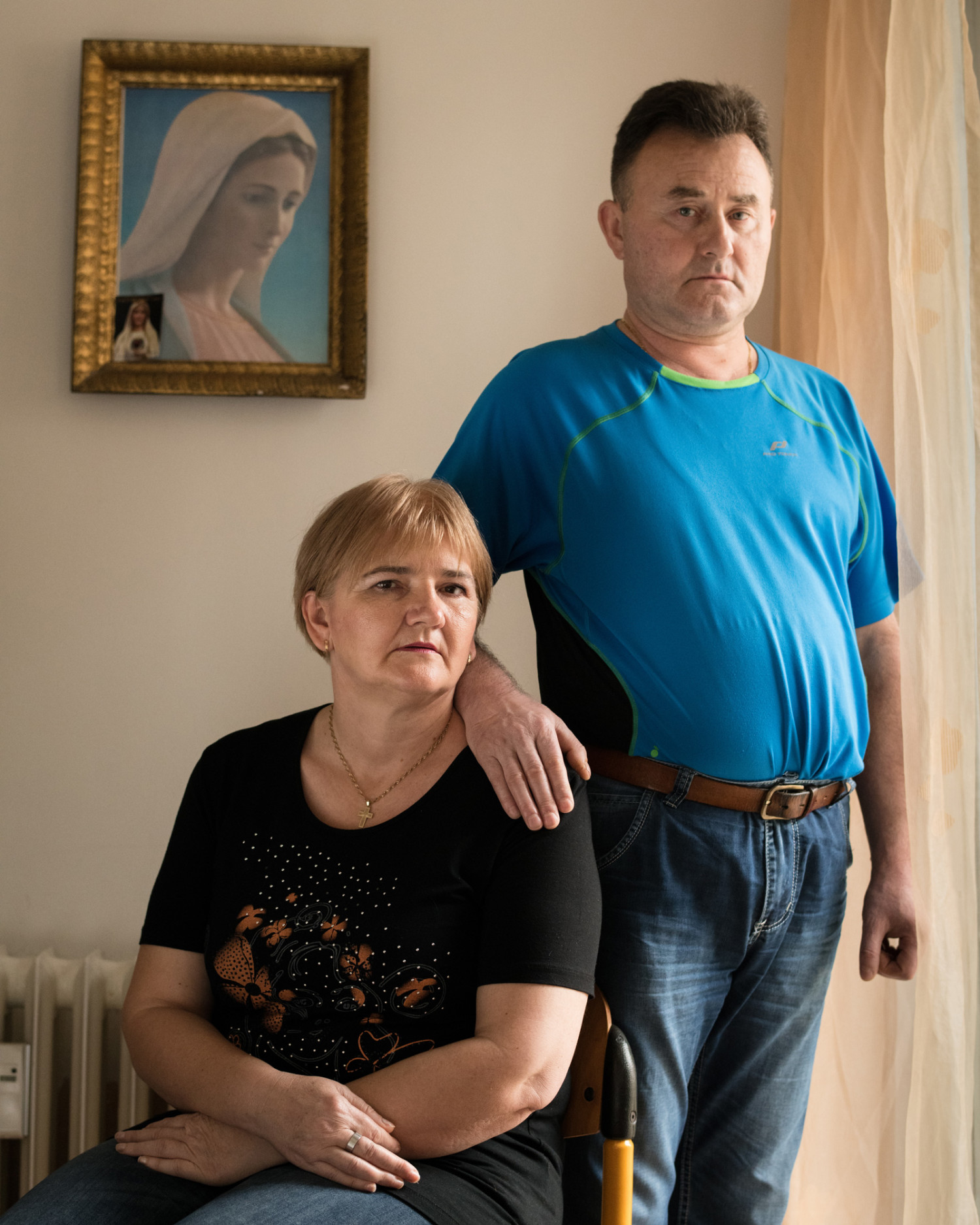
“It is possible to end the sad legacy of institutional care if there is will.”
Since 2015 the process of deinstitutionalization in Croatia has come to a standstill. The previous and current Ministries responsible for social welfare are demonstrating no political will to commit to supporting the continued transformation of residential institutions into community based service providers.
Successful examples of transformation, such as the Home for Mentally Ill people in Osijek, are now facing strong and steady attacks from unions, which insist on keeping their rights the same as when the Home operated as an institution. The most significant issues are related to financial compensation for night and weekend work which causes increases in the per capita costs of people supported. The Ministry is using this as an excuse to stop the reform process, and only to provide community based services to people who require minimal support, sealing the fate of people who require more support behind institution walls.
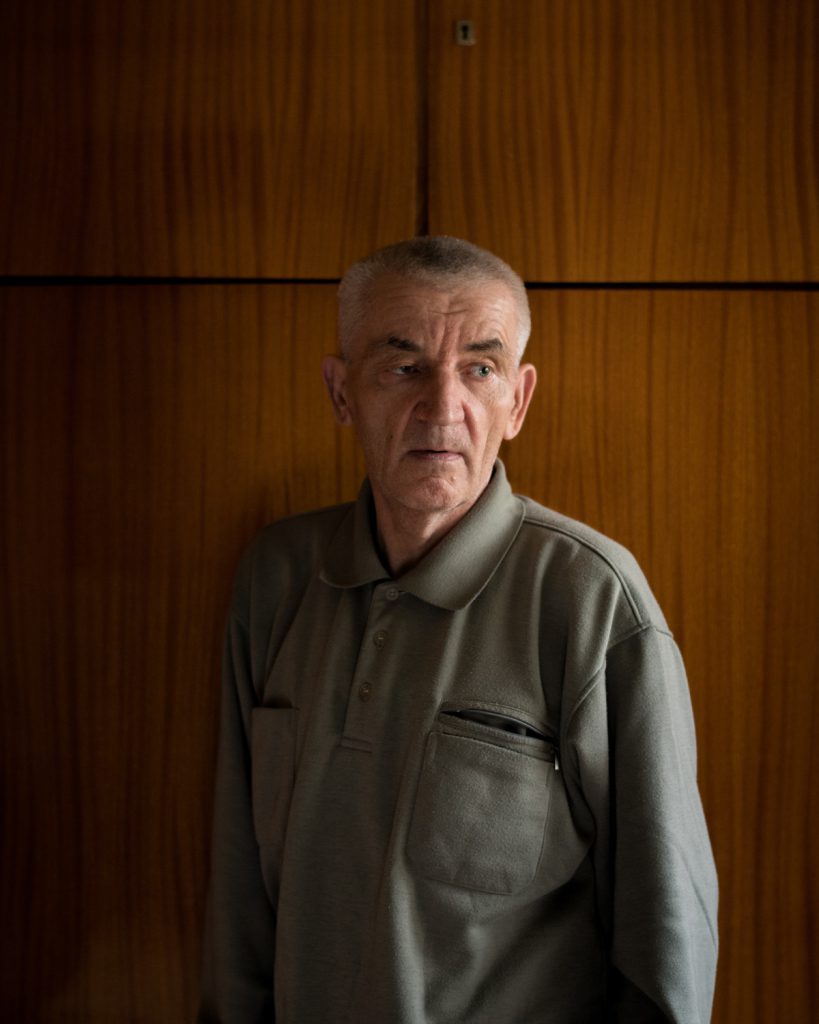
While visiting Croatia in November 2016, the UN Special Rapporteur on the right of everyone to the enjoyment of the highest attainable standard of physical and mental health, Mr. Dainius Pūras stated: “Croatia should not stagnate and should replicate the good practices of deinstitutionalization that have already proven to be rights compliant,” he stressed. “With political will of national and county authorities, added to expertize of civil society actors and support of EU funds, the country has an incredible opportunity to end the sad legacy of institutional care and systemic human rights violations in mental healthcare.” Mr Puras highlights the example of the transformed Home in Osijek, stating: I will recommend this practice for replication in Croatia and other countries. There, I could see how people with psychosocial disabilities are now fully included in society, living in regular apartments, in small groups and with minimal regular support from staff of the Center. This is an example of the way to invest throughout the country, as this transformation is beneficial for both the persons with psychosocial disabilities and society at large and shows that it is possible to end the sad legacy of institutional care if there is will.
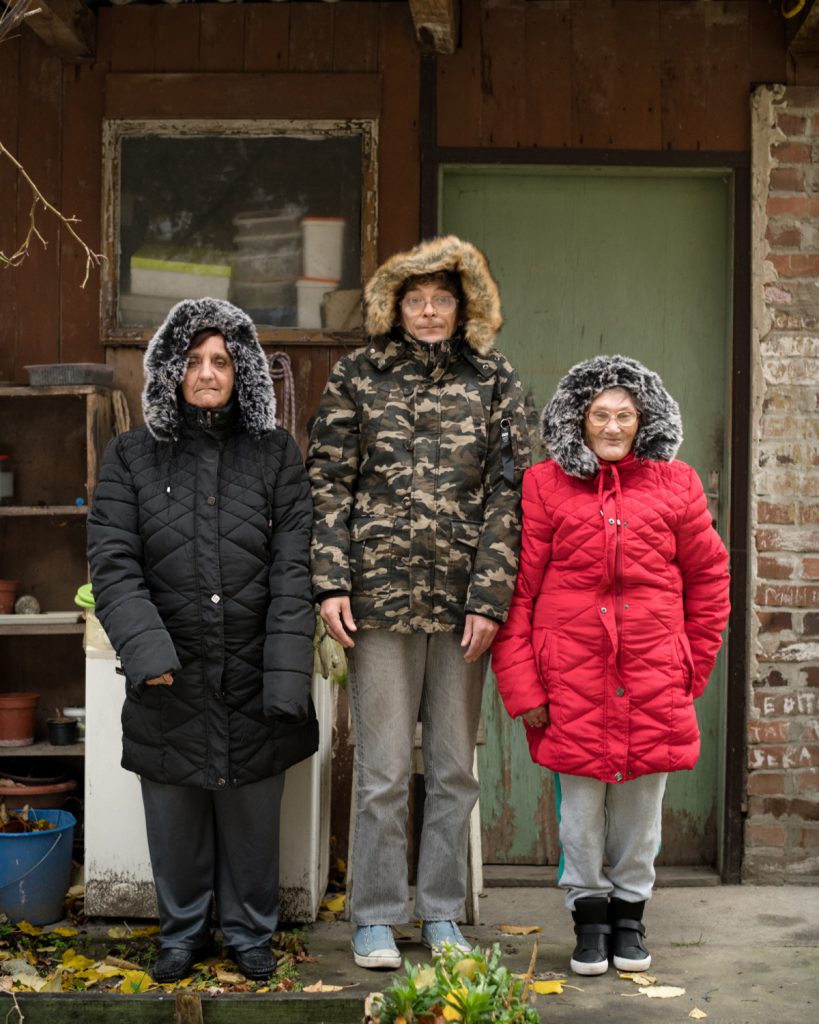
“Instead of proudly showcasing such examples of success that are unparalleled in the region, the government is marginalizing them. Lack of progress in developing cost standards for community based services and to negotiate new collective agreements with unions have brought the reform to a halt, creating the danger that more than 4000 people with intellectual /psychosocial disabilities in Croatia will remain institutionalized and deprived of their right to live in the community.
There are imminent dangers here. One is the collapse of NGO service providers due to unsustainably low per capita prices the Ministry pays for the provision of supported housing services. There is also a danger that future efforts will focus on foster care for adults as this is a significantly less costly option than supported housing. Foster care for children, accompanied by adequate support services, can be a viable option, but it is inappropriate for adults; foster care for adults is very loosely regulated in Croatia and has been shown to be of highly questionable quality according to recent research commissioned by the Ombudswoman For People With Disabilities.
The Croatian government has access to EU Structural Funds, and those funds are legally mandated to be invested in the development of community based services for people with disabilities. Given the lack of political will to continue the reform process, there is a real danger that such funding will be invested in the construction and/or renovation of residential institutions. Therefore, it is important that the Croatian government Structural Funds investment are effectively monitored.”
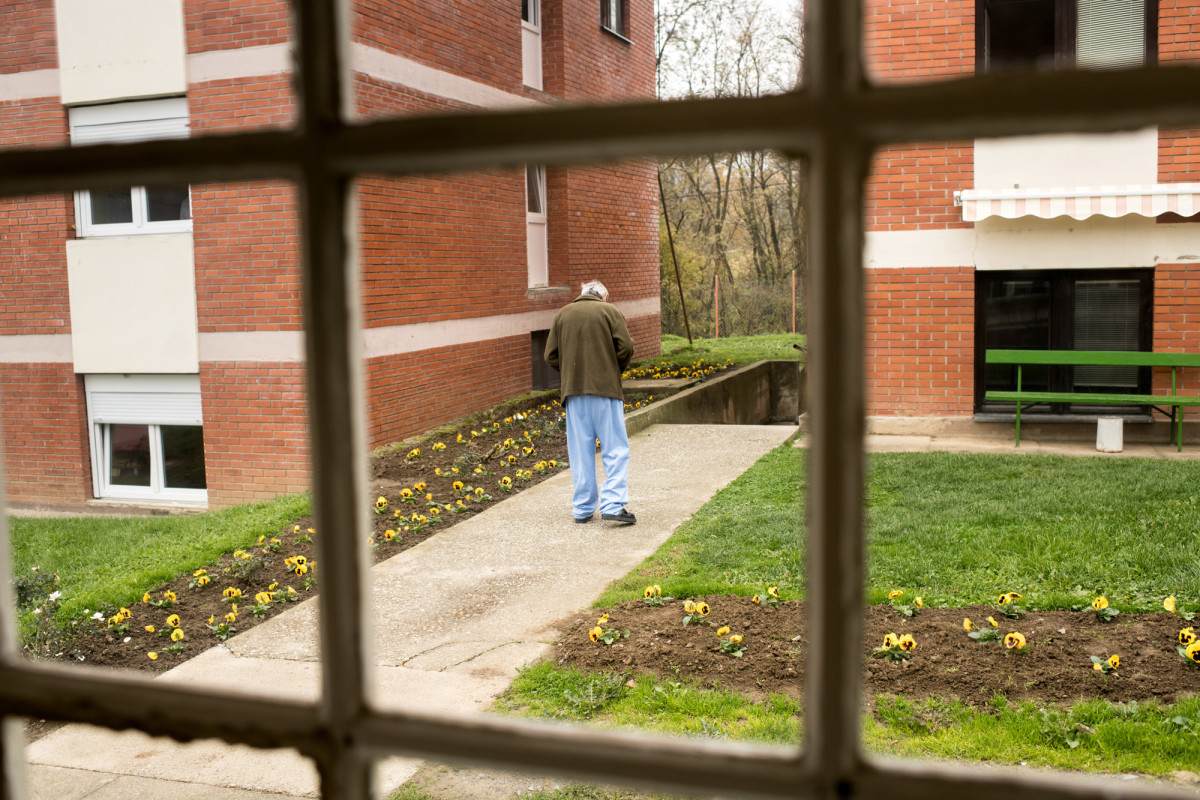
the Open Society Foundations

